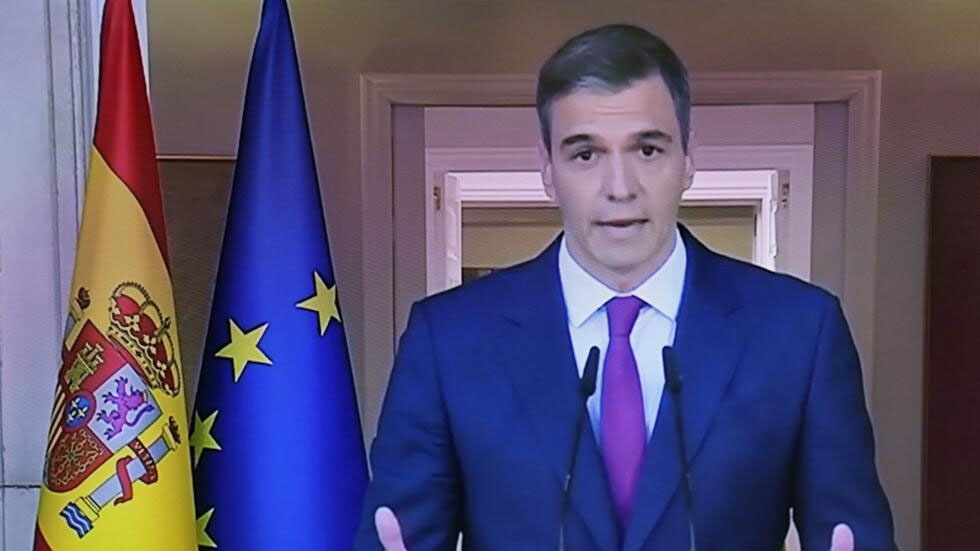
Photo Credit: Reuters
Pedro Sánchez has said he will stay on as Spain's prime minister, following five days of speculation over his future.
Mr Sánchez cancelled official engagements last week after a court opened an initial inquiry into his wife over corruption claims. He denounced them as a harassment campaign by right-wing media.
"Expressions of solidarity from all sections of society" meant he decided to remain in office, he added.
A series of demonstrations were held around Spain over the weekend, calling for the prime minister to continue in his post. More than 10,000 people gathered in front of the Socialist Party (PSOE)'s headquarters in Madrid in a show of support from the prime minister.
"Thanks to this mobilisation, I have decided to continue leading the presidency," Mr Sánchez said, vowing to carry on "with more strength if possible".
"This isn't about the destiny of one leader - it's about deciding what kind of society we want to be. Our country needs this self-reflection. We have let the mud soil our public life for too long," he said.
The accusations against Mr Sánchez's wife, Begoña Gómez, were brought against her by the organization Manos Limpias (Clean Hands), led by a man linked to the far-right called Miguel Bernad.
In his speech, Mr Sánchez also acknowledged that his statement announcing his decision to take time off to reflect may have been "disconcerting" but said that "there are times when the only way to move forward is to stop, reflect and decide what way we want to go."
Many had expected Mr Sánchez to either resign or to call a confidence motion.
"Thank you for defending democracy, for championing decency and for fighting for a supportive and courageous Spain," PSOE spokesperson Esther Peña Camarero said on X.
But members of the opposition were less supportive. Isabel Díaz Ayuso, the opposition Popular Party (PP)'s leader of the Madrid region, accused Mr Sánchez of being "shameless".
She said the prime minister had taken five days to decide "how to attack judges, political rivals and the free press" and added: "He should give fewer speeches without journalists and more press conferences where he can be asked questions."
Those are just some of the opposition leaders who were less supportive towards the whole case.
Lewis Musonye
















